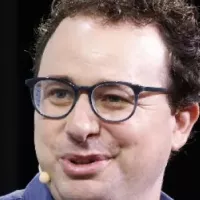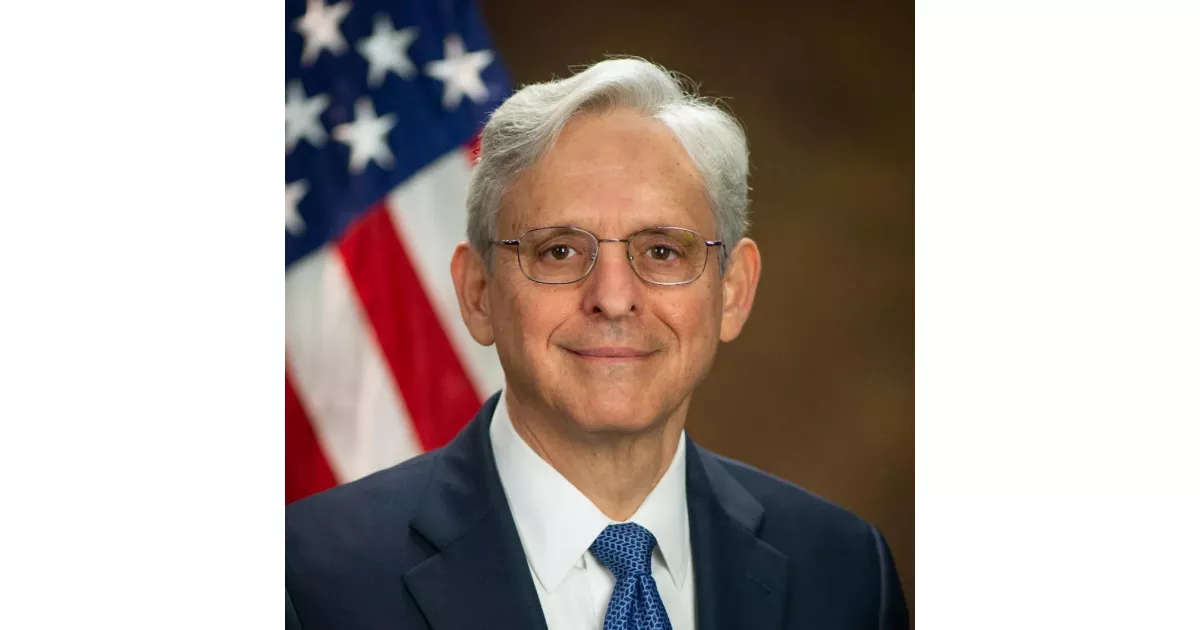Merrick Garland is an American lawyer and jurist. He served as the 86th United States Attorney General from 2021 to 2025. Prior to this role, he was a circuit judge on the U.S. Court of Appeals for the D.C. Circuit from 1997 to 2021. Notably, in 2016, President Barack Obama nominated Garland to the Supreme Court, but the Senate declined to hold a confirmation vote on his nomination.
1915: Father's Birth Year
In 1915, Merrick Garland's father, Cyril Garland, was born.
1916: Historical Context of Nomination Delays
After a period of 293 days, Garland's nomination expired on January 3, 2017. It was the longest pending period of a Supreme Court nominee in history, exceeding the 125-day delay faced by Justice Louis Brandeis in 1916.
1925: Mother's Birth Year
In 1925, Merrick Garland's mother, Shirley (née Horwitz), was born.
1970: High School Graduation
In 1970, Merrick Garland graduated as the class valedictorian from Niles West High School in Skokie, Illinois.
1971: Comparison to Lewis F. Powell Jr.
Garland had more federal judicial experience than any other Supreme Court nominee in history, and was the oldest Supreme Court nominee since Lewis F. Powell Jr. in 1971.
1974: Graduation from Harvard
In 1974, Merrick Garland graduated from Harvard with a Bachelor of Arts, summa cum laude.
1977: Clerkship for Judge Henry Friendly
In 1977, Merrick Garland began clerking for Judge Henry Friendly of the U.S. Court of Appeals for the Second Circuit.
1977: Graduation from Harvard Law School
In 1977, Merrick Garland graduated from Harvard Law School with a Juris Doctor, magna cum laude.
1978: Clerkship for Justice William J. Brennan Jr.
In 1978, Merrick Garland clerked for Justice William J. Brennan Jr. of the U.S. Supreme Court.
1979: Special Assistant to U.S. Attorney General
In 1979, after his clerkships, Merrick Garland became a special assistant to U.S. Attorney General Benjamin Civiletti.
1981: Entered Private Practice at Arnold & Porter
In 1981, after the Carter administration ended, Merrick Garland entered private practice at the law firm Arnold & Porter.
1983: Motor Vehicles Manufacturers Ass'n v. State Farm Mutual Automobile Insurance Co.
In 1983, Garland acted as counsel to an insurance company suing to reinstate an unpopular automatic seat belt mandate.
1985: Made Partner at Arnold & Porter
In 1985, Merrick Garland was made a partner at the law firm Arnold & Porter.
September 1987: Garland marries Lynn Rosenman
In September 1987, Garland married Lynn Rosenman at the Harvard Club in Midtown Manhattan.
1989: Assistant United States Attorney
In 1989, Merrick Garland became an assistant United States attorney in the U.S. Attorney's Office for the District of Columbia.
1991: Co-chair of the administrative law section of the District of Columbia Bar
In 1991, Garland served as co-chair of the administrative law section of the District of Columbia Bar.
1992: Returned to Arnold & Porter
In 1992, Merrick Garland briefly returned to Arnold & Porter.
1993: Joined Clinton Administration
In 1993, Merrick Garland joined the Clinton administration as deputy assistant attorney general in the Criminal Division of the United States Department of Justice.
1994: Co-chair of the administrative law section of the District of Columbia Bar
In 1994, Garland served as co-chair of the administrative law section of the District of Columbia Bar.
September 6, 1995: Nomination to U.S. Court of Appeals
On September 6, 1995, President Bill Clinton nominated Merrick Garland to the U.S. Court of Appeals for the District of Columbia seat.
December 1, 1995: Senate Judiciary Committee Hearing
On December 1, 1995, Merrick Garland received a hearing regarding the nomination before the Senate Judiciary Committee.
November 1996: Clinton Wins Presidential Election
After winning the November 1996 presidential election, Clinton renominated Garland.
January 7, 1997: Renominated to U.S. Court of Appeals
On January 7, 1997, after Bill Clinton won the November 1996 presidential election, Clinton renominated Garland to the U.S. Court of Appeals for the District of Columbia.
March 19, 1997: Confirmed to U.S. Court of Appeals
On March 19, 1997, Merrick Garland was confirmed to the U.S. Court of Appeals for the District of Columbia by a 76–23 vote.
March 20, 1997: Received Judicial Commission
On March 20, 1997, Merrick Garland received his judicial commission for the U.S. Court of Appeals.
1997: Appointment to U.S. Court of Appeals
In 1997, Merrick Garland became a circuit judge of the United States Court of Appeals for the District of Columbia Circuit.
1997: Appointment to the United States Court of Appeals
In 1997, President Bill Clinton appointed Merrick Garland to the United States Court of Appeals for the District of Columbia Circuit.
1998: United States ex rel. Yesudian v. Howard University
In 1998, Garland wrote for the court in United States ex rel. Yesudian v. Howard University, holding that a plaintiff alleging he was fired for whistleblowing could sue under the False Claims Act for retaliation.
1999: Hutchins v. District of Columbia
In 1999, Garland concurred with other judges that D.C.'s Juvenile Curfew Act of 1995 implicated significant rights of minors in Hutchins v. District of Columbia.
1999: United States v. Watson
In 1999, in United States v. Watson, Garland dissented when the court concluded a prosecutor's closing argument was unduly prejudicial.
2000: Father's Death
In 2000, Merrick Garland's father, Cyril Garland, passed away.
2002: Religious Freedom Case
In 2002, Garland joined a unanimous court in ruling for two federal prisoners who were denied the right to consume communion wine, addressing religious freedom.
2003: Alexander v. Daley
In 2003, Garland joined a decision in Alexander v. Daley, rejecting a challenge by D.C. residents seeking congressional voting rights.
2003: al Odah v. United States
In 2003, Garland was on a panel that unanimously held that federal courts could not hear challenges from Guantanamo detainees in al Odah v. United States.
2003: Elected to Harvard Board of Overseers
In 2003, Merrick Garland was elected to the Harvard Board of Overseers.
2003: Rancho Viejo, LLC v. Norton
In 2003, in Rancho Viejo, LLC v. Norton, Garland found the arroyo toad was protected by the federal Endangered Species Act.
2004: United States ex rel. Totten v. Bombardier Corp.
In 2004, Garland dissented in United States ex rel. Totten v. Bombardier Corp., disagreeing with Judge John Roberts's narrow interpretation of the False Claims Act regarding false claims submitted to Amtrak.
2005: Confirmation Hearing Questioning
During confirmation hearings in 2005, Senator Chuck Grassley questioned John Roberts on why he had not adopted Garland's reading in a prior case.
2005: Lee v. Department of Justice and Initiative & Referendum Institute v. U.S. Postal Service
In 2005, Garland dissented from the denial of rehearing en banc in Lee v. Department of Justice, supporting reporters' rights to protect anonymous sources. Also in 2005, he wrote for the court in Initiative & Referendum Institute v. U.S. Postal Service, holding that a ban on signature-gathering at post offices violated the First Amendment.
2007: Dissent in Bribery Case
In 2007, Garland dissented when the en banc D.C. Circuit reversed the conviction of a Washington, D.C. police officer who had accepted bribes in an FBI sting operation.
2007: Parker v. District of Columbia
In 2007, Garland voted in favor of en banc review of the D.C. Circuit's panel decision in Parker v. District of Columbia invalidating the D.C. handgun ban.
2008: Parhat v. Gates
In 2008, Garland wrote for a panel that unanimously overturned the Combatant Status Review Tribunal's determination that a captured Uyghur was an enemy combatant in Parhat v. Gates.
2009: Saleh v. Titan Corp.
In 2009, Garland dissented in Saleh v. Titan Corp., arguing that former Iraqi detainees at Abu Ghraib prison should be able to sue private military contractors for torture and prisoner abuse.
2009: Supreme Court Consideration
In 2009, Garland was considered to fill a vacated seat on the United States Supreme Court.
2009: National Association of Manufacturers v. Taylor
In 2009, Garland wrote for the court in National Association of Manufacturers v. Taylor, upholding the constitutionality of lobbyist disclosure requirements under the Honest Leadership and Open Government Act.
2009: Fraud Enforcement and Recovery Act of 2009
In 2009, Garland's dissent in United States ex rel. Totten v. Bombardier Corp. is credited with sparking the Fraud Enforcement and Recovery Act of 2009, which eliminated a loophole regarding false claims cases against federal grantees.
2009: President of Harvard Board of Overseers
In 2009, Merrick Garland served as president of the Harvard Board of Overseers.
2009: Finalist for Supreme Court Post
In 2009, after Justice David Souter's retirement announcement, Garland was one of nine finalists for the Supreme Court post, but the position went to Sonia Sotomayor.
April 2010: Supreme Court Nomination Contender
In April 2010, Garland was widely seen as a leading contender for a nomination to the Supreme Court following Justice John Paul Stevens' retirement announcement.
May 2010: Potential Bipartisan Support
In May 2010, Senator Orrin Hatch stated he would help Obama if Garland was nominated to the Supreme Court, predicting bipartisan support.
August 2010: Elena Kagan Confirmed
In August 2010, Elena Kagan was confirmed as a Supreme Court Justice, after President Obama interviewed Garland, among others, for the vacancy.
2010: Supreme Court Consideration
In 2010, Garland was considered again to fill a vacated seat on the United States Supreme Court.
2010: Religious-Discrimination Claim
In 2010, Garland wrote the decision for a unanimous court in favor of an Interior Department employee who brought a religious-discrimination claim after being denied weekday work to attend church, addressing religious freedom.
2010: Description by Tom Goldstein
In 2010, Tom Goldstein, the publisher of SCOTUSblog, described Judge Garland's record as demonstrating that he is essentially the model, neutral judge.
July 2011: Rejection of Habeas Corpus Petition
In July 2011, Garland wrote for a unanimous panel rejecting Guantanamo detainee Moath Hamza Ahmed al Alawi's petition for habeas corpus.
February 12, 2013: Became Chief Judge of the D.C. Circuit
On February 12, 2013, Merrick Garland became chief judge of the D.C. Circuit.
May 2013: Announced Same-Day Audio Recordings
In May 2013, Merrick Garland announced that the D.C. Circuit had unanimously decided to provide the public with same-day audio recordings of oral arguments in the court.
2013: ACLU v. CIA
In 2013, Garland wrote for a panel unanimously rejecting the CIA's Glomar response and ordering it to process the ACLU's FOIA request regarding targeted killings by CIA drones in ACLU v. CIA.
2013: Became Chief Judge
In 2013, Merrick Garland became chief judge for the United States Court of Appeals for the District of Columbia.
2013: In re Aiken County
In 2013, in In re Aiken County, Garland dissented when the court issued mandamus ordering the Nuclear Regulatory Commission to process the Yucca Mountain nuclear waste repository license.
2015: Cause of Action v. FTC
In 2015, Garland wrote for a panel unanimously overturning the FTC's limitation on FOIA fee waivers to large news outlets in Cause of Action v. FTC.
2015: Wagner v. Federal Election Commission
In 2015, Garland wrote for the unanimous en banc D.C. Circuit in Wagner v. Federal Election Commission, upholding a prohibition on campaign contributions from federal contractors.
February 13, 2016: Antonin Scalia's Death and Nomination Controversy
On February 13, 2016, Supreme Court Justice Antonin Scalia died, leading Senate Republicans to declare they would not consider any nominee put forth by President Obama, sparking a nomination controversy.
March 2016: Nomination to the Supreme Court
In March 2016, President Barack Obama nominated Merrick Garland to serve as an associate justice of the Supreme Court following Antonin Scalia's death, but the Republican Senate majority refused to hold a hearing or vote on his nomination.
March 2016: Supreme Court Nomination Process
In early March 2016, Garland was vetted as a potential Supreme Court nominee. On March 16, 2016, President Obama formally nominated Garland to the vacant post of Associate Justice of the Supreme Court of the United States.
August 2016: McConnell's Boast
In August 2016, McConnell boasted about stopping Garland's Supreme Court nomination.
2016: Garland's Dissent Count
As of 2016, Garland had written just fifteen dissents in his two decades on the court, fewer than his colleague Brett Kavanaugh.
2016: Garland's net worth disclosed
Financial disclosure forms in 2016 indicated that Garland's net worth at the time was between $6 million and $23M.
2016: Mother's Death
In 2016, Merrick Garland's mother, Shirley (née Horwitz) passed away.
2016: Nomination to Supreme Court
In 2016, President Barack Obama nominated Garland to the Supreme Court following the death of Justice Antonin Scalia.
January 3, 2017: Nomination Expiration
On January 3, 2017, Merrick Garland's nomination to the Supreme Court expired at the end of the 114th Congress, after lasting 293 days without a Senate hearing or vote.
January 31, 2017: Nomination of Neil Gorsuch
On January 31, 2017, President Donald Trump nominated Neil Gorsuch to fill the Supreme Court vacancy, following the expiration of Garland's nomination.
April 7, 2017: Confirmation of Neil Gorsuch
On April 7, 2017, the Senate confirmed Neil Gorsuch's nomination to the Supreme Court, filling the vacancy for which Garland was previously nominated.
April 2018: McConnell's Reflection
In April 2018, McConnell called the decision not to act upon the Garland nomination "the most consequential decision I've made in my entire public career".
June 2018: Lynn Rosenman advises on voting systems security
As of June 2018, Lynn Rosenman Garland advised government and nonprofit groups on voting systems security and accuracy issues.
June 2018: Garland attends daughter's wedding
In June 2018, Garland took part in the ceremony when his daughter Rebecca married Xan Tanner.
February 11, 2020: End of Term as Chief Judge
On February 11, 2020, Merrick Garland's seven-year term as chief judge ended.
July 2020: Jessica Garland hired as law clerk
In early July 2020, Justice Elena Kagan hired Jessica Garland, a 2019 graduate of Yale Law School, as one of her law clerks to serve as a law clerk in 2022-2023.
2020: End of Term as Chief Judge
In 2020, Merrick Garland's term as Chief Judge ended.
January 6, 2021: Selection as Attorney General
On January 6, 2021, President-elect Joe Biden selected Garland for the position of United States Attorney General.
January 2021: Nomination as U.S. Attorney General
In January 2021, President Joe Biden nominated Merrick Garland as U.S. Attorney General.
March 11, 2021: Retirement from Federal Judicial Service
On March 11, 2021, Garland retired from federal judicial service to become the Attorney General of the United States.
April 2021: Russian Sanctions
In April 2021, Russia imposed sanctions against Garland, including prohibiting him from entering Russia, in retaliation for U.S. actions.
April 21, 2021: Investigation into Minneapolis Police Department
On April 21, 2021, Garland announced that the DOJ was opening a pattern-and-practice investigation into the Minneapolis Police Department after the conviction of Derek Chauvin for the murder of George Floyd. The investigation examined the use of force by officers and discriminatory conduct.
May 2021: DOJ Appeal in Trump Investigation
In May 2021, the DOJ, under Garland, appealed part of a ruling to make public a DOJ memo detailing Bill Barr's legal rationale for clearing President Trump of obstruction of justice.
June 7, 2021: Justice Department defends Trump in defamation lawsuit
On June 7, 2021, the Justice Department, under Garland's leadership, continued to defend Trump in a defamation lawsuit filed by E. Jean Carroll. The DOJ argued that Trump's statements denying the rape allegation were made in his presidential capacity and thus he could not be sued. This decision drew criticism and the White House distanced itself from it.
June 2021: Pledge to protect voting rights
In June 2021, Garland pledged to double the department's enforcement staff for protecting the right to vote, in response to Republican Party efforts to restrict voting. Also in June 2021, Garland announced a DOJ lawsuit against the state of Georgia over its newly passed restrictions on voting, stating that the state targeted Black Americans in violation of the Voting Rights Act of 1965.
June 2021: DOJ reverses ban on body-worn cameras
In June 2021, the DOJ, through a memo issued by Deputy Attorney General Lisa Monaco, reversed a Trump-era policy that banned federal officers and agents from using body-worn cameras. The memo also mandated the use of body-worn cameras for federal law enforcement in certain circumstances.
July 1, 2021: Moratorium on federal executions imposed
On July 1, 2021, Attorney General Garland imposed a moratorium on all federal executions pending a review of policies and procedures. This review included examining the risk of pain and suffering, permissible methods of execution, and changes made to expedite capital sentences.
July 2021: Justice Department releases election law guidance
In July 2021, the Justice Department released two guidance documents regarding election law changes and post-election audits, reminding states that the DOJ was closely observing states' compliance with federal election and civil rights laws.
July 26, 2021: DOJ allows testimony from Trump officials
On July 26, 2021, the DOJ sent letters to former DOJ officials of the Trump administration stating that the DOJ would not exert executive privilege over their testimony as witnesses to Trump's attempts to overturn the 2020 election or the January 6 Capitol attack.
July 28, 2021: DOJ rejects request to protect Mo Brooks
On July 28, 2021, the DOJ rejected Rep. Mo Brooks's request to protect him in Eric Swalwell's civil lawsuit against him and Trump. The DOJ determined that Brooks' relevant comments and actions were outside the scope of his official responsibilities as a member of Congress.
September 14, 2021: Civil investigation into Georgia prisons
On September 14, 2021, the DOJ announced a civil investigation into prisons in Georgia, focusing on prison violence and sexual abuse of LGBTQ prisoners by prisoners and staff.
October 13, 2021: Investigation into Texas juvenile detention facilities
On October 13, 2021, the DOJ launched another investigation into five juvenile detention facilities in Texas for systemic physical or sexual abuse of children.
October 2021: Memorandum addressing threats against school board members
In October 2021, amid a surge of threats against school board members, Garland issued a memorandum addressing an "increase in harassment, intimidation, and threats of violence" against school officials. The memo directed the FBI and US attorneys to set up meetings with law enforcement leaders.
October 21, 2021: Referral of Steve Bannon to DOJ for contempt
On October 21, 2021, the U.S. House of Representatives voted to refer Steve Bannon to the DOJ for criminal contempt of Congress for defying a subpoena from the January 6 select committee. Garland stated that the Justice Department would apply the facts and the law and make a decision.
November 2021: DOJ sues Texas over Senate Bill 1
In November 2021, the DOJ sued Texas over Senate Bill 1 which required rejection of mail ballots "for immaterial errors and omissions," alleging it would restrict voting for those with limited English proficiency, soldiers deployed and voters overseas.
2021: Garland's net worth estimated
As of 2021, Garland's net worth was estimated by Forbes at $8.6-33M.
2021: Became Attorney General
In 2021, Merrick Garland served as the 86th United States attorney general.
November 2022: Appointment of Jack Smith as special counsel
In November 2022, days after Trump announced his 2024 presidential campaign, Garland appointed Jack Smith to serve as special counsel for the investigations of Trump.
February 8, 2024: Release of Hur report on Biden documents
On February 8, 2024, the Department of Justice released a report authored by special counsel Robert Hur into President Biden's handling of classified documents, concluding that charges were not necessary in the incident. The report mentioned perceived problems with Biden's memory and mental acuity.
June 12, 2024: Garland held in contempt by House of Representatives
On June 12, 2024, Garland was held in contempt by the House of Representatives for defying subpoenas and refusing to disclose audio of Hur's interview with Biden. This action was a result of Biden's invocation of executive privilege.
July 11, 2024: House attempt to find Garland in "inherent contempt" falls short
On July 11, 2024, an attempt by the House of Representatives to find United States attorney general Garland in "inherent contempt" of Congress fell short in a 204 to 210 vote. The resolution sought to impose a fine of $10,000 per day on Garland for defying a congressional subpoena.
November 2024: Criticism over pace of Trump prosecution
Garland faced criticism regarding the pace of the prosecution of Donald Trump. Some observers believe the indictments obtained by Jack Smith were unlikely to go to trial before the November 2024 election.
November 2024: Potential Trial Delay
In November 2024, observers believed that indictments obtained by special counsel Jack Smith were not likely to go to trial, which some assigned as partial responsibility to Merrick Garland.
2025: End of Term as Attorney General
In 2025, Merrick Garland's term as Attorney General ended.
Mentioned in this timeline

Donald John Trump is an American politician media personality and...
Ukraine is a country in Eastern Europe the second-largest on...

Bill Clinton the nd U S President - served as...

Barack Obama the th U S President - was the...

Joe Biden is an American politician who served as the...

The White House located at Pennsylvania Avenue NW in Washington...
Trending

50 minutes ago Selena Gomez's Spiced-Plum Manicure and TikTok Clone Theory Spark Buzz

50 minutes ago Kit Harington and Sophie Turner Gag After On-Screen Kiss in New Movie

51 minutes ago Trump administration updates, Iran nuclear efforts, and White House controversies unfold.

51 minutes ago Dario Amodei Highlights India's Central Role in Shaping AI's Future at AI Summit.

2 hours ago Yoon Suk Yeol, South Korean ex-president, receives life sentence for insurrection and martial law.

4 hours ago Maya Hawke and Christian Lee Hutson celebrated wedding with Stranger Things cast present.
Popular

Jesse Jackson is an American civil rights activist politician and...
Randall Adam Fine is an American politician a Republican who...

Pam Bondi is an American attorney lobbyist and politician currently...

Barack Obama the th U S President - was the...

Martin Luther King Jr was a pivotal leader in the...

Ken Paxton is an American politician and lawyer serving as...
